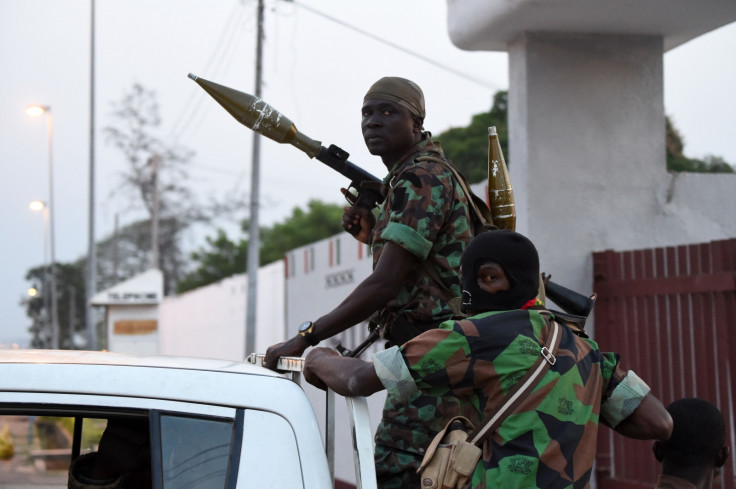Ivory Coast mutinies: Divisions in armed forces could jeopardise future security
Risk management firm PGI warns divisions pose 'significant threat to stability' ahead of 2020 polls.

Ivory Coast's recent mutinies are exposing deep rifts in the armed forces and pose a danger to future security, a risk management organisation has said.
Mutinies in the Ivorian army subsided on 8 January after the government agreed to pay CFA12m (£15,726) to 8,500 army officers, effectively giving in to all of the soldiers' demands. However, this was quickly followed by separate rebellions from other members of the security forces, including the gendarmes, and social protests led by civil servants.
The recent revolts underscore stark divisions within the military, which have remained since President Alassane Ouattara took office at the end of the second Ivorian civil war in April 2011, Protection Group International (PGI) said in a report published on 27 January.
Ouattara clinched power after his RDR party formed a coalition with the Force Nouvelle (FN) rebel groups that had held much of the country's north since the civil war in the mid-2000s. The majority of those involved in the recent mutiny were former FN fighters who had been promised the bonuses at the end of the war.
"A further motivation for the mutiny likely relates to a long-running presidential succession struggle involving Guillaume Soro, the FN's former leader and the speaker of parliament," PGI analysed.
Soro was next in line for the presidency if the top seat became vacant, under the 2000 Constitution. However, the new constitution adopted in November 2016 now stipulates that whoever occupies the newly-created position of vice-president will replace the president in such an event.
"It is notable that the 6 January mutiny erupted two days before the prime minister was set to dissolve the government as part of the process to adopt the new constitution in what has been seen as an effort to demonstrate Soro's continued influence," PGI said.
The risk management organisation warned of further protests "amid ongoing power struggles" relating to the succession process and the government's putative efforts to limit Soro's powers.
According to PGI, the implementation of plans to reform the armed forces, which include reducing the share of salaries in the defence budget currently at 90%, could risk triggering further unrest, specifically if soldiers and former FN commanders feel disproportionately affected by the reforms.
A rift in the armed forces is one of the challenges facing Ouattara, who vowed to step down in 2020, but PGI warned it could pose "a significant threat to stability" ahead of the 2020 presidential elections.
There is a clear risk presidential candidates could look to secure support from within the military to challenge their opponents – especially Soro, who could leverage his influence within the army to boost his candidature in 2020.
© Copyright IBTimes 2025. All rights reserved.






















